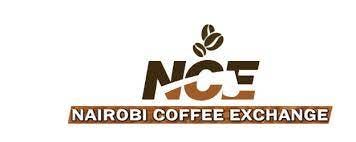Commercial Banks Raise Base Lending Rates for Seventh Consecutive Month, Reaching 13.31% by June's End
Commercial banks in Kenya have implemented their seventh consecutive month of base lending rate increases, culminating in a rate of 13.31% by the close of June. The prolonged series of rate hikes has sparked concerns over the affordability of credit for borrowers, owing to the combination of Central Bank of Kenya (CBK) rate adjustments and surging yields on government bonds. Fresh data released by the CBK reveals a steady climb in the average lending rate from May's 13.21% to the latest figure, perpetuating an upward trajectory initiated in December when rates vaulted from 12.36% to 12.67%.
Borrowers are grappling with the consequences of these consecutive rate hikes, often experiencing the impact of higher costs as they seek credit from financial institutions. When combined with additional factors such as the customer's risk profile, the base lending rates have led some borrowers to encounter interest rates exceeding 20%. A notable example is Equity Bank Kenya, which recently elevated its base lending rate from 12.5% in January to 14.69% in August. This increase pushed the overall interest rates for certain customers beyond the 21% threshold.
The current average base lending rate for the sector stands at its highest point since March 2018, registering at 13.49%. This escalation in rates has unfolded alongside a backdrop of consistent adjustments by the CBK to its base rate. The evolving financial landscape has left borrowers navigating an environment of elevated borrowing costs, prompting scrutiny of monetary policies and their potential consequences for consumers and the broader economy.
ECONOMY
Government Reinstates Fuel Subsidies to Counter Soaring Pump Prices
In a surprising about-face, the government announced on Monday its decision to reintroduce fuel subsidies, aiming to shield consumers from the staggering surge in pump prices. The swift action came in response to the recent arrival of a more affordable fuel shipment that had sent shockwaves through the oil market. The Energy and Petroleum Regulatory Authority (Epra) stepped in to maintain fuel prices at their current levels during the latest review cycle, effectively preventing them from breaching the critical Sh200 mark.
Acknowledging the impact of heightened landed costs on consumers, Epra articulated its reasoning in a press release: "To cushion consumers from the spike in pump prices as a consequence of the increased landed costs, the government has opted to stabilize pump prices for the August-September pricing cycle." Epra further revealed that compensation for the incurred costs by oil marketing companies would be drawn from the Petroleum Development Fund.
Epra's intervention prevented what would have been substantial price hikes. Without the subsidy, petrol prices could have surged to Sh202.01 per liter, diesel to Sh183.26 per liter, and kerosene to Sh175.22 per liter in Nairobi.
Instead, the stabilized prices will remain unchanged at Sh194.68 for petrol, Sh179.67 for diesel, and Sh169.48 for kerosene, providing a momentary reprieve for consumers grappling with the ongoing fluctuations in global oil markets.
Click here to access the article
COMPANIES
Companies Face Deregistration and Sanctions for Concealing Secret Shareholders, Aiming to Combat Corruption
In a significant step towards combating corruption in public tenders, companies are now under increased scrutiny and face severe consequences for failing to disclose the identities of their secret shareholders, including their names and residential addresses. The move, aimed at enhancing transparency and accountability, has been introduced as a joint effort by the Business Registration Service (BRS) and the Treasury.
According to disclosures made by the Treasury to the International Monetary Fund (IMF), the BRS, a State agency operating within the office of the Attorney-General, has undertaken proactive outreach activities to ensure that companies understand their obligations regarding the submission of beneficial ownership information. The Treasury emphasizes that the BRS has been engaging in extensive awareness campaigns to underscore the significance of revealing accurate information about secret shareholders.
Companies found non-compliant in this regard will face severe repercussions. The Treasury has stated that the BRS will not hesitate to deregister companies from the official company register due to their failure to meet the disclosure requirements. Additionally, companies in violation of these regulations will be prohibited from accessing any online services offered by the BRS until they fully comply with the disclosure mandates. This move aligns with the Treasury's commitment to creating a fair business environment, fostering integrity, and curbing corruption within the realm of public tenders.
Click here for the full article
GOVERNMENT
Treasury Implements Two-Year Plan to Settle Arrears with Oil Marketers Through Bonds
In a strategic move aimed at managing its financial obligations to oil marketing companies (OMCs), the Treasury has adopted a novel approach by splitting the settlement of arrears into two halves. This plan involves converting the outstanding debt into bonds, to be spread over a two-year period. The move comes as the government grapples with finding innovative solutions to clear its pending bills while also ensuring the sustainability of its financial position.
To initiate the process, the exchequer has been actively engaging with OMCs, encouraging them to transition their unpaid balances into bonds. In a recent example, OMCs were offered the opportunity to participate in a re-opened three-year bond, featuring a 14.228 percent coupon rate payable biannually. This arrangement includes the final settlement of the principal and accumulated interest, ultimately clearing the arrears owed to each respective OMC. Remarkably, the reopened bond attracted significant investor interest, totaling Sh18.5 billion, which included bids beyond the oil sector.
Treasury Cabinet Secretary, Prof Njuguna Ndungu, revealed that the decision to split the settlement into two phases was a result of meticulous financial planning. He confirmed that the first half of the conversion would occur in the upcoming financial year, while the remaining portion would be executed within the current fiscal year. This approach demonstrates the government's commitment to finding pragmatic solutions that address its financial commitments while minimizing potential disruptions to the national budget.
Click here to access the article
MARKETS
Farmers Empowered to Bypass Brokers as Nairobi Coffee Exchange Reopens
In a significant move aimed at reviving the coffee industry and curbing alleged profiteering, farmers in Kenya have been granted permission to directly sell their coffee through the reopened Nairobi Coffee Exchange (NCE) auction. The auction, which had been temporarily suspended for a month due to governmental licensing issues, resumed operations on Tuesday. This decision is expected to directly impact brokers who have traditionally played a role in the coffee trade, as they stand to lose the transaction fees they have historically earned.
Deputy President Rigathi Gachagua expressed optimism about the shift, emphasizing that empowering farmers and eliminating middlemen could lead to improved prices for coffee, bolster exports, and generate foreign exchange earnings. During the reopening ceremony of the NCE in Nairobi, Gachagua condemned what he referred to as cartels operating within the coffee sector. He indicated that the success of this move would have positive implications for the Kenyan economy.
Despite the promising shift toward direct farmer participation, the Nairobi Coffee Exchange faces challenges on its road to recovery. Notably, some major millers and marketers have chosen not to partake in the reopened auction. As a result, the initial offering included a relatively limited 2,705 bags of coffee for sale.
WHAT YOU MIGHT HAVE MISSED
Rwanda and Uganda have taken divergent paths to safeguard their economies from the uncertainties of the global market.
The National Bank of Rwanda (NBR) announced on Thursday a decision to increase its policy rate by 50 basis points. This move is aimed at curbing inflationary pressures and bolstering the nation's economic growth. The decision follows a period during which the NBR maintained its policy rate at 7 percent, despite calls from the International Monetary Fund (IMF) to implement stricter monetary policies.
Bank of Uganda (BoU) chose to lower its policy rates for August to 9.5 percent. The unexpected rate cut signals the mounting concerns of monetary policy experts in Kampala over the challenging economic conditions that have gripped various sectors. This decision by the BoU reflects a proactive stance intended to alleviate the impact of adverse economic conditions on the Ugandan economy. The rate cut underscores the bank's commitment to fostering financial stability and stimulating economic recovery during these uncertain times.
International Monetary Fund (IMF)endorsed President William Ruto's strategy to restore stability to fuel prices
In a show of support, the International Monetary Fund (IMF) has endorsed President William Ruto's strategy to restore stability to fuel prices, utilizing the funds amassed in the Petroleum Development Levy (PDL) Fund. This move comes amidst a backdrop of divergent opinions regarding whether the government's recent maneuver constitutes a form of 'subsidy'. The IMF, renowned for advocating policies often met with public resistance, such as fuel taxation, interest rate hikes, and the elimination of fuel subsidies through financing agreements, has clarified that the government's latest initiative to shield consumers from soaring fuel costs via the PDL does not contravene Kenya's obligations within the framework of the IMF-supported program.
Finnish firm unveils bus booking service in Kenya
Online bus booking platform AfriKonekta has unveiled its services in the Kenyan market, setting the stage for intensified competition with the local players, including Buupass and Quickbus. The Helsinki-based mobility platform targets long-distance bus operators in Nairobi by enabling travellers to reserve seats online. The platform has integrated parcel delivery services targeting small and medium enterprises, online merchants and individuals. The service is available on an app, Internet, WhatsApp or via a toll-free phone call will allow travellers to book their tickets, choose seats and pay fares digitally.
Safaricom launches Mpesa in Ethiopia
Safaricom has braved ethnic tensions in Ethiopia to launch M-Pesa operations in the Horn of Africa country three months after receiving a mobile money license. Safaricom Ethiopia’s Mobile Financial Services, the company that will be running M-Pesa, was unveiled on Wednesday as it seeks to replicate the success that has been seen in Kenya.“We are excited to go live with M-Pesa in Ethiopia and start providing mobile financial services to our customers,” said Stanley Njoroge, interim CEO of Safaricom Ethiopia.







